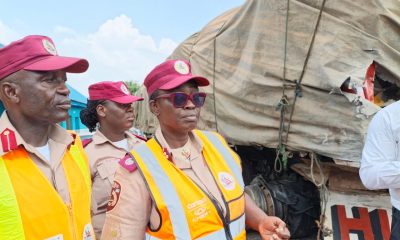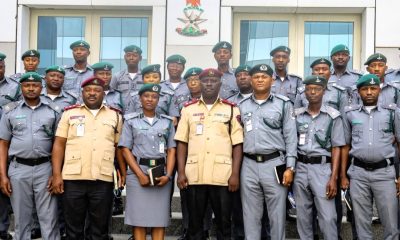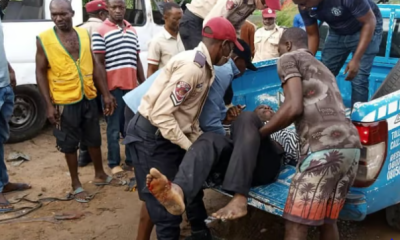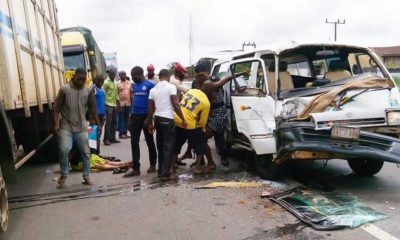Deaths arising from road accidents has been on a steady decline since 2012, the Federal Road Safety Corps has said.
Corp Marshal, FRSC, Mr. Boboye Oyeyemi, who spoke at a seminar organised by the Nigerian Association of Auto Journalists (NAJA) in Lagos through the Zonal Commander, FRSC Zone 2 for Lagos and Ogun states, Mr. Shehu Zaki, said last year, a total of 5,053 people died in accidents involving 65,467 persons in which 60,414 travellers were rescued.
In 2015, about 64,394 persons were involved in road accidents and 5,440 people died while 58,954 others were rescued.
Those that died in the accidents recorded in 2014, 2013, 2012 and 2011 were given as 5,996, 6,544, 6,092, and 6,054 people, respectively.
Oyeyemi attributed the high percentage (over 91 per cent) of people rescued at the accident scenes to the improvement in the emergency response to reports of road crashes.
He said, “The coordination of the call centre with emergency response point called ‘Zebra’ has increased the response time during emergencies.
“This also led to significant improvement (91.1 per cent) in the number of persons rescued alive from crash scenes in Nigeria.”
ALSO SEE: FRSC: We must prosecute those who attack our men
The Corps Marshal gave a number of initiatives and interventions introduced by the FRSC and concerned groups expected to improve the level of road safety and substantially reduce the carnage on the highways.
For instance, he said the National Post Crash Community Care Initiative was introduced to equip first responders and ‘good Samaritans ‘at crash scenes with professional and sound skills while attending to victims of road accidents at the communities.
Oyeyemi also said some safe systems stemming from the United Nation’s Decade of Action had influenced the application of smart solutions to road user challenges in Nigeria.
He said that the safe systems approach advocated for the implementation of the Decade of Action for Road Safety facilitated the Nigeria Road Safety Strategy, adding that the NRSS aimed to reduce fatalities by 35 per cent by 2020.
He said, “The NRSS has been approved by the Federal Executive Council and endorsed by the National Economic Council. The smooth and successful driving of NRSS will be anchored by the National Road Safety Advisory Council.
He also said with the stringent measures being put in place for the training of drivers in the country, “safety on the highways is assured as well as generation of employment through driving schools.”
According to him, the World Bank’s intervention has led to manpower development and general capacity building; improved road safety practice and assistance in the creation of additional legal framework under in the corps.
Specifically, Oyeyemi said 30 patrol rank officers were intensively trained, in addition to the training of 30 managers at the California Highway Academy Patrol, US; and the support for the training of 40 officers on train –the-trainers for the delivery of liquid hydrocarbon products in France.

 Health5 days ago
Health5 days ago
 Entertainment7 days ago
Entertainment7 days ago
 Crime6 days ago
Crime6 days ago
 Education1 week ago
Education1 week ago
 Health1 week ago
Health1 week ago
 Comments and Issues6 days ago
Comments and Issues6 days ago
 Football7 days ago
Football7 days ago
 Latest6 days ago
Latest6 days ago













